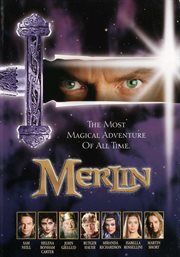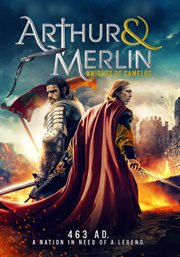Review by Choice Review
As the title promises, Lawrence-Mathers (medieval history, Univ. of Reading, UK) provides a thoroughly researched discussion of the ubiquitous Merlin, whose reach extends from the early Middle Ages into the 21st-century through the popular BBC television series Merlin. Although her focus is mainly the 12th century, the author does mention this television series and ties it to a very early depiction of Merlin as a boy wizard. She notes that for 500 years, Merlin was thought to have been a real person with a real history. She looks at how his "reality" changed and how he shifted into a legendary figure. Lawrence-Mathers provides excellent background for all the major variations of the Merlin story that are taught in surveys of Arthurian literature. She also looks at some of the more obscure continental European versions of Merlin's story. She extends her discussion to the changing view of magicians and how this change affected the perception of Merlin. Although the book provides much scholarly information, it is written in clear prose and thus should be accessible to anyone who has an interest in the legendary magician. Summing Up: Highly recommended. Lower-division undergraduates and above; general readers. L. J. Larson Our Lady of the Lake University
Copyright American Library Association, used with permission.
Review by Publisher's Weekly Review
Merlin has intrigued people the world over since he was first introduced in the 12th century, through the pages of Geoffrey of Monmouth's Historia Regum Britanniae. The powerful but doomed magician of King Arthur's mythical court became a fixture in medieval romances and is still well- known eight centuries later. Less familiar is the original concept of Merlin as a historical personage who had a profound influence on the volatile political landscape of Europe during the Middle Ages. British medievalist Lawrence-Mathers explores the evolving literary representations of Merlin against their historical backdrops in this densely written monograph. According to Lawrence-Mathers, Merlin was a "political prophet" whose magical powers and prophecies served as a "possible source of guidance and insight" during times of instability and upheaval, from the 12th to the 16th centuries, and even into the English civil war of the mid-17th century. Merlin's impact on the political landscape was all the more lasting because he was regarded as a genuine historical rather than a legendary or fictional figure. But as popular belief in the reality of magic declined in the 18th century, so did Merlin's impact. Despite Merlin's lingering fascination, this study is recommended for scholars well-versed in the history and literature of medieval Europe. (Nov.) (c) Copyright PWxyz, LLC. All rights reserved.
(c) Copyright PWxyz, LLC. All rights reserved
Review by Library Journal Review
The figure of the wizard Merlin was first introduced in the 1130s in Geoffrey of Monmouth's extraordinarily popular but largely fabulous History of the Kings of Britain, in which Geoffrey invented prophesies that he claimed for his Merlin, based in part on the sixth-century Myrddin Wyllt. Thereafter, with few exceptions, Merlin was seen as a historical figure, a wizard whose prophecies and involvement in astrology and magic placed him at the forefront of what passed for scientific practice then. Until now most Merlin scholarship has focused primarily on his place in the Arthurian myth, and not on the consequences for medieval thought of accepting the Merlin figure as real. The virtue of this carefully written study is to place Merlin's history in the context of medieval, not modern, thought, showing how certain aspects of the Merlin myth-his involvement in magic and astrology, his half-demon heritage, his ability to prophesy-raised questions that had to be addressed in order to justify his place in what became accepted history. VERDICT This is not a book for general Merlin enthusiasts. It is not so much about Merlin as about how his reputation was handled in the High Middle Ages and Renaissance. A strong academic study, but likely to attract only scholars.-David Keymer, Modesto, CA (c) Copyright 2012. Library Journals LLC, a wholly owned subsidiary of Media Source, Inc. No redistribution permitted.
(c) Copyright Library Journals LLC, a wholly owned subsidiary of Media Source, Inc. No redistribution permitted.
Review by Kirkus Book Review
A finely hewn portrait of the wizard Merlin from the 12th to the 16th centuries, when, in the eyes of the times, he was very much a real historical personage. In the early years of the 12th century, Geoffrey of Monmouth wrote a book known as the History of the Kings of Britain. It was a hoax, but it was a book very much of its time, a huge best-seller, writes Lawrence-Mathers (Medieval History/Univ. of Reading) in this deeply satisfying survey of the famed magician. The author discusses Geoffrey and the other contemporary or near-contemporary historians at work, and she notes that one of the things that gave Geoffrey's book such instant popularity was the fact that the emerging political entity known as Britain needed a history with substance, lineage and heroes, something to shore up its many dynastic insecurities. Merlin was just the man to deliver: an omniscient magician yet fallible and vulnerable, reader of the stars and the flights of birds, and, most of all, a prophet. Yet Merlin was a figment of Geoffrey's imagination. He was not a figure at court, but arrived when needed; there is no intimation he was bedecked in pointed cap and astrological robes, but lived simply in near hermitlike circumstances deep in the woods. Thanks to Geoffrey's book, Merlin became a fixture in the popular, theological, political and romantic imagination. He was the right man in the right place, and other historians tapped into his popularity to buttress their work; his deeds didn't stop with Geoffrey, but were embellished for another 400 years. Out of Merlin and his many gifts and prophesies, Geoffrey et al. made a history of a place, and there also emerged a dangerous theological and political edge comprised of fusing the magical tradition of the ancient world, the early Christian Church and the Celtic past. Lawrence-Mathers nimbly brings readers into the Middle Ages, during which most people believed in prophecy and magic as real, active things, when the Merlins of the world surely walked the land and saw what most did not. Sharp and enchanting.]] Copyright Kirkus Reviews, used with permission.
Copyright (c) Kirkus Reviews, used with permission.


